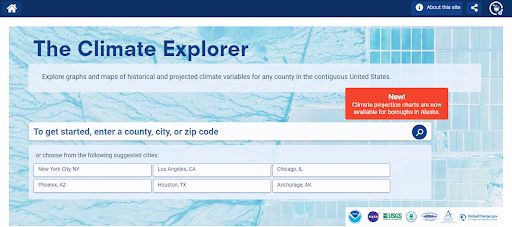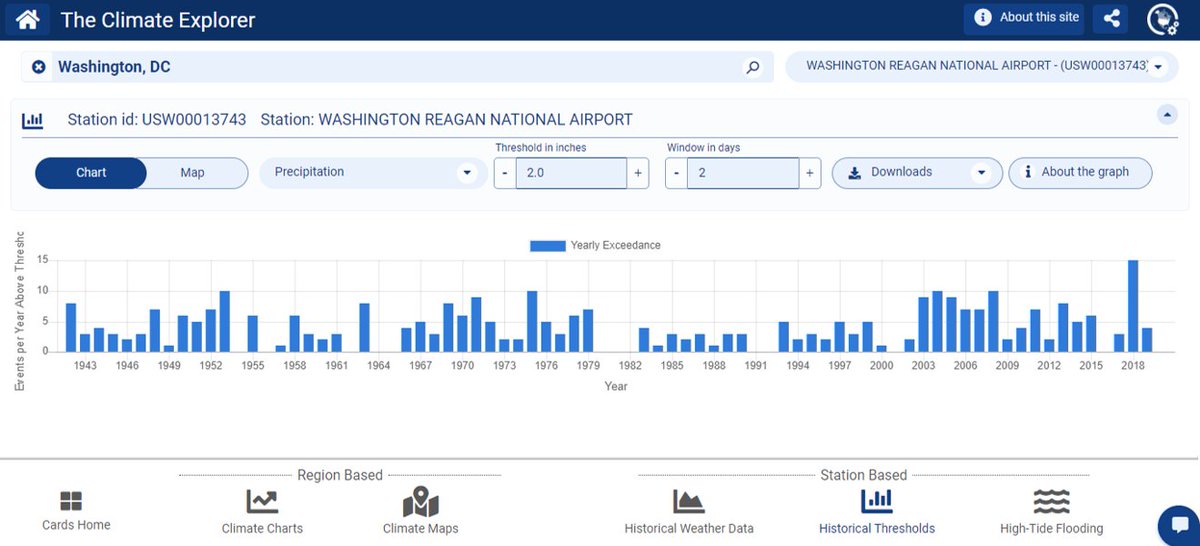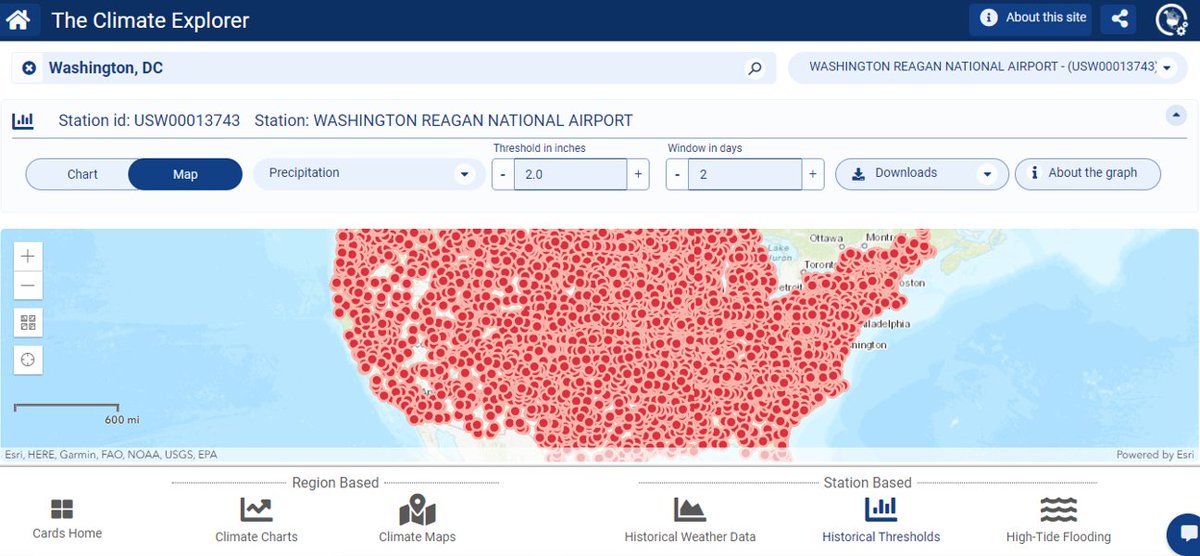This week’s #ClimateExercise is all about extreme precipitation. Large amounts of precipitation in a short time can cause a bunch of problems like flooding, erosion, and destruction of property. Photo: Howard County government 1/9
https://www.climate.gov/news-features/event-tracker/torrential-rains-bring-epic-flash-floods-maryland-late-may-2018">https://www.climate.gov/news-feat...
https://www.climate.gov/news-features/event-tracker/torrential-rains-bring-epic-flash-floods-maryland-late-may-2018">https://www.climate.gov/news-feat...
According to the 4th National Climate Assessment, extreme precipitation events are increasing in frequency/intensity across most of the US. And are very likely to continue to increase in intensity/frequency in the future due to climate change. https://science2017.globalchange.gov/chapter/7/ ">https://science2017.globalchange.gov/chapter/7... 2/9
Let’s jump to the US Climate Resilience Toolkit’s Climate Explorer to explore past extreme precipitation events where you live. At the link below, type in the city you want to learn about and hit enter. https://crt-climate-explorer.nemac.org/ ">https://crt-climate-explorer.nemac.org/">... 3/9
From this page, click Historical Thresholds and choose a station on the map to explore its precipitation data. Make sure precipitation is chosen in the drop down menu. 4/9
Change the precip total in the “Threshold in inches” and # of days in “Window in Days” boxes to see how many events have exceeded that threshold in that many days in a given year. Try 2 inches of rain in 2 days. 5/9
Repeat this for different areas across the country. Try drier places in the Southwest, or wetter places in the Pacific Northwest, or areas impacted by tropical storms along the Gulf Coast. 6/9
What can communities do to be resilient against extreme precipitation? Check out these case studies in the US Climate Resilience Toolkit to learn what’s already happening. https://toolkit.climate.gov/case-studies?f%5B0%5D=field_climate_stressor%3A18">https://toolkit.climate.gov/case-stud... Photo: Howard County government 7/9
And check out all 120 resources on precipitation from the CLEAN network ( @ClimateLit) in our Teaching Climate section. https://cleanet.org/clean/educational_resources/collection/index.html?search_text=Precipitation">https://cleanet.org/clean/edu... 8/9
And, of course, check out your local weather forecast from the National Weather Service, @NWS, http://weather.gov"> http://weather.gov , to stay weather ready and know when extreme weather is forecast for you. 9/9

 Read on Twitter
Read on Twitter









